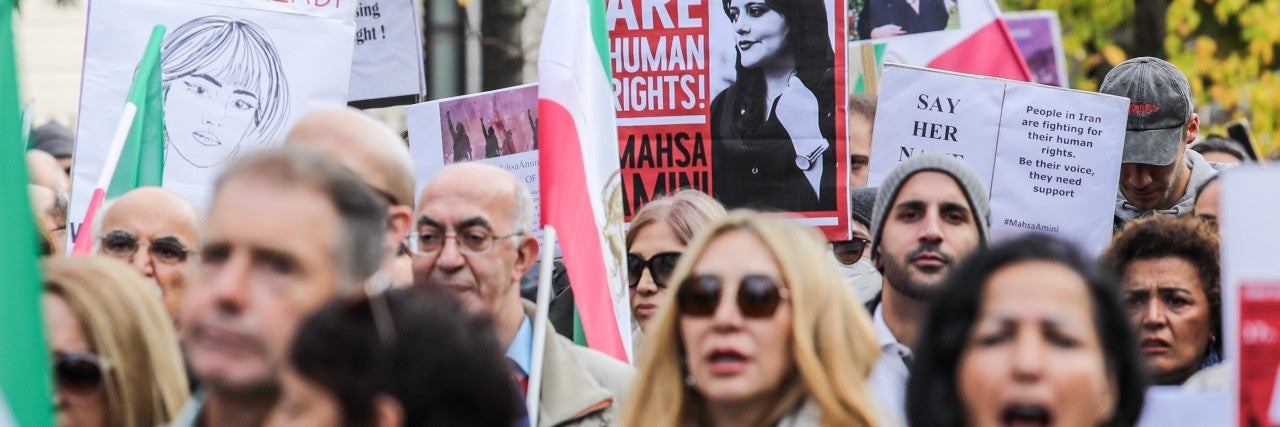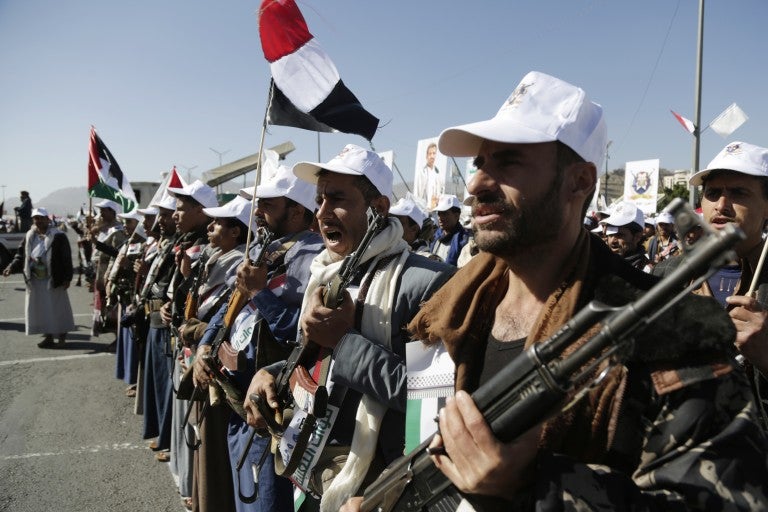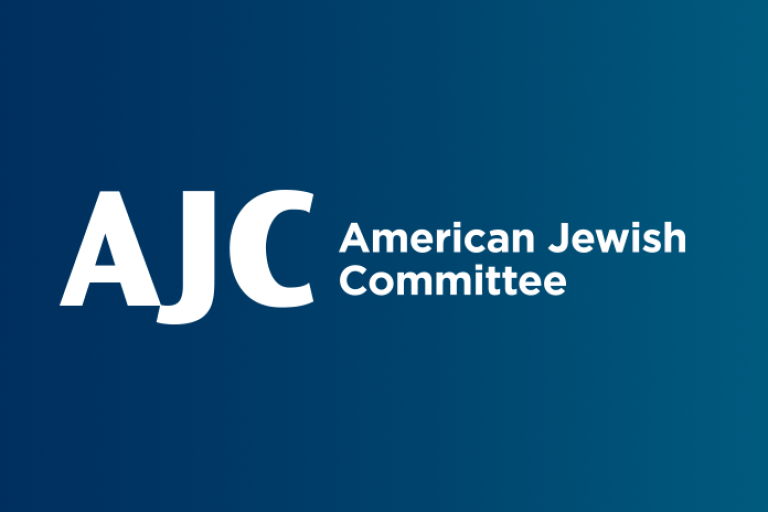December 22, 2022
Since the beginning of the 2022 nationwide massive protests that followed the death of Mahsa Amini in police custody, Iranian security forces killed hundreds of protesters and detained and tortured many more. Seven protesters were executed.
In November 2022, AJC welcomed the decision by the UN Human Rights Council to establish “independent international fact-finding mission” on Iran that will “thoroughly and independently investigate” human rights violations committed by the regime in its deadly crackdown.
Here are five reasons why the UN Human Rights Council must continue to hold Iran accountable.
- Severity of human rights violations
The brutal crackdown by Iranian authorities against peaceful protestors has reportedly led already to the death of more than 200 protestors, including 23 children. Evidence suggests that there has been a pattern by security forces of deliberately firing live ammunition and metal shells at protesters and bystanders, including children.
There have also been other alarming widespread human rights violations, such as the authorities’ reported arbitrary detention and torture in custody of as many as 1,000 protestors, activists, journalists, and students, including at least 90 human rights defenders since the protests began.
Additionally, since November 2022, at least 26 individuals have reportedly been sentenced to death in connection with the protests and dozens more charged with offences carrying the death penalty, according to a UN investigator.
Iran’s authorities have engaged in discriminatory practices against many religious and ethnic minority communities – including Sunni Muslims, Zoroastrians, Jews, and Christians – for decades. However, their systematic persecution of the Baha’is, Iran’s largest religious minority, is especially alarming and has escalated over the past year.
Since June 2022, the already fraught situation of Iran’s Baha’is has grown even more precarious, as detailed in a letter sent to President Biden by AJC and other U.S. organizations in August calling for U.S. action to prevent the commission of atrocity crimes and a statement of alarm by eight UN human rights experts.
- Iran’s long record of impunity
Iran has a long record of official impunity for violations in other recent cases of violent suppression of dissent by the authorities.
Current Iranian President Ebrahim Raisi reportedly played a central role in the executions of thousands of Iranian political prisoners in the summer of 1988. Leading investigators have identified Raisi, then deputy prosecutor general of Tehran, as having participated on the so-called “Death Committee” on many occasions. Some 5,000 prisoners were executed in secret on that Committee’s orders.
More recently, as the head of the Iranian judiciary, Raisi presided over the crackdown on human rights amid nationwide protests in November 2019. Under his watch, Raisi’s judiciary granted impunity to officials and security forces responsible for killing hundreds of men, women, and children and subjecting thousands to mass arrests, secret detention, and torture. As UN Special Rapporteur on Human Rights in Iran Javaid Rehman noted in a 2021 report recounting the allegations, “impunity for those actions and a lack of accountability prevail.” In his latest report, Rehman again reiterates his call on the international community to seek accountability for officials implicated in offenses against protesters in 2019.
Under Raisi’s presidency, Iran’s authorities have doubled down on their denial of women’s autonomy and right to participate in public life and the persecution of those who seek to change the status quo. In August, Raisi signed a decree enhancing punishments for women who violate mandatory veiling laws, and authorities televised what appeared to be a forced confession by one of several women arrested for violating the law.
Previous waves of mass protests in Iran, including December 2017, November 2019, July 2021, November 2021, and May 2022 have revealed well-documented patterns of human rights violations and crimes under international law. These include lethal force against protestors, mass arrests and detentions, torture, enforced disappearances, and more.
During the crackdown last year, Iranian authorities have ignored repeated calls by the international community, such as the UN secretary-general, UN special rapporteurs, and the UN human rights office as well as world leaders such as U.S. President Joe Biden and European Union Foreign Policy High Representative Josep Borrell to end its unlawful use of force against protestors and innocent bystanders.
Starting with the Iran hostage crisis in 1979, the Iranian regime has used the practice of wrongfully detaining foreign nationals, especially Westerners with dual citizenship. Currently, three Americans – Siamak Namazi, Emad Sharghi, and Morah Tahbaz - are being wrongfully detained in Iran’s notorious Evin Prison, where the regime mostly holds political prisoners.
- Violent crackdown on Iranian women
The death of Mahsa Amini in Iranian police custody has spurred on women and girls to lead the uprising as a reaction to the oppression they have long endured.
Iranian women have been at the forefront of the protest movement, removing headscarves, cutting their hair, chanting anti-government slogans, and confronting security forces. Women protestors have been subjected to beatings and sexual harassment in plain sight.
Iranian women have long been denied basic rights. Iranian law prohibits women from passing their nationality down to their children. Iran also requires women to wear headscarves (hijabs) in public and prohibits women from engaging in vaguely defined “indecent” or “immoral” activity.
Women are discriminated against in marriage, divorce, employment, inheritance, and holding political office. They are in effect ‘infantilized’ in Iran, and their male relatives are required to get them permission to travel, get a passport, and many other things in daily life.
Those who seek to defend women’s rights have faced harsh punishment for doing so such as renowned human rights lawyer Nasrin Sotoudeh, winner of Europe’s most prestigious human rights award, the Sakharov Human Rights Prize. She was sentenced to 38 years in prison and 148 lashes in 2018 for “encouraging corruption and prostitution” because she provided legal representation to and supported women who were arrested for removing their headscarves in public. She is currently out on medical furlough.
Last year, Iranian agents have also attempted to kidnap the U.S.-based Iranian exile Masih Alinejad, a journalist kicked out of Iran nearly a decade ago for her harsh criticism of Iran’s clerical establishment and her campaign against the compulsory hijab.
Accepting American Jewish Committee’s (AJC) Moral Courage Award at AJC Global Forum 2022, Alinejad said she wanted to share her award with “the brave Iranian women” who have been treated as “second-class citizens” since the 1979 Iranian revolution.
- UN Human Rights Council’s special role
The UNHRC is the highest level of the UN human rights machinery. The inter-governmental body is made up of 47 member states.
Among the powers of the UNHRC include its ability to conduct reviews of compliance with universal human rights standards by UN member states, allow for independent human rights experts to report and advise on specific situations in countries around the world, and authorize UNHRC-mandated investigations that promote accountability for these violations and counter impunity.
Through a special session, the UNHRC could create a new independent international mechanism on Iran to investigate, report publicly, and ensure accountability for the ongoing violations in Iran and strengthen the capacity of the existing Special Rapporteur on human rights in Iran.
- Impact of U.S. role on Human Rights Council
In October 2021 the United States was elected to a three-year term on the UNHRC. The election came after the U.S. left the Council in 2018, citing the body’s anti-Israel bias and its poor membership.
Under President Joe Biden, the U.S. sought and gained membership in the 47-member UNHRC precisely to demonstrate its ability to catalyze an effective international response to the most pressing human rights crises worldwide - and this is one.
Many other crises, like Ukraine, Ethiopia, Sudan, Myanmar, and Afghanistan, have recently been the subject of urgent action at the UNHRC. Iran never has been the subject of a special session, and this is the time to correct that.
Mobilizing U.S. partners and allies at the UNHRC to hold a special session on Iran, which can be done promptly upon the request of 16 of its 47 members, would be an important and necessary first step in demonstrating the impact of U.S. participation in and membership on the Human Rights Council. Creating a new mechanism to respond to the violence in response to the recent protests would be yet another timely measure.


